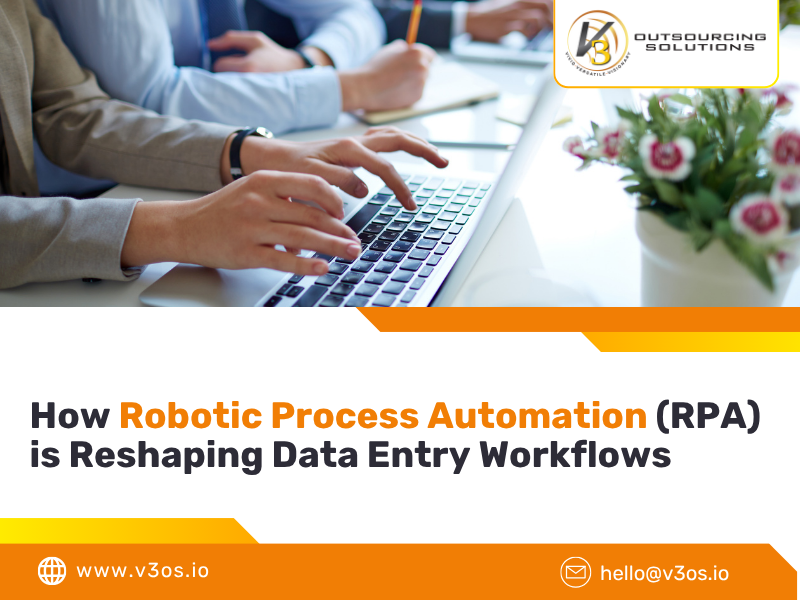
Data entry is an effective way to shine out in the multifaceted business world. However, if you seek more efficient data entry, the most reliable option is the integration of Robotic Process Automation (RPA). The technology is revolutionising the traditional data entry workflow by automating repetitive, rule-based functions that are performed manually. Regardless of the industry type, RPA tools streamline data entry and minimise human intervention, followed by maximising data efficiency. Read on the blog to learn the impact of RPA on the manual data entry process.
Prior to diving into RPA’s impact, let’s catch a glimpse of the limitations of traditional data entry that increased the likelihood of process automation.
Data entry done manually is prone to error. This potentially leads to flawed data records, financial discrepancies and compliance risks.
Data entry is a herculean task, and handling it manually can result in fatigue-induced errors and decreased productivity due to extended hours required in order to complete the task.
Hiring & training data entry professionals can cost companies heavily in terms of salaries, infrastructure, employee benefits and allocation of resources.
Manual data entry makes it a point to meet the evolving requirements of growing business. Here scaling will become impractical without a highly effective team.
Robotic process automation makes use of bots to copy human action in digital systems. The bots are effective in application logging, mining out data, validating information and placing data into databases. To be precise, RPA bots can effectively take care of data entry functions by themselves. Let’s find out the crucial benefits of using Robotic Process Automation in data entry.
Increased data quality is one of the most significant benefits of using RPA in data entry services. RPA bots operate based on pre-destined rules set by humans to perform data entry tasks efficiently. This reduces typos, duplicate entries and formatting variables, ensuring a high level of accuracy.
Accelerated data processing is a significant impact of RPA on the manual data entry process. RPA bots can process data much faster than human data specialists. Data entry tasks can be executed in minutes instead of hours with RPA data extraction capabilities. Moreover, RPA technology can be used 24/7, eliminating the limitations posed by employee exhaustion or fatigue caused by worker.
Business automation lets businesses incorporate existing systems smoothly. This is one of the substantial benefits of using RPA in data entry services. RPA works across multiple platforms, including ERP, CRM & Excel. That is, business automation through RPA does not demand a complex IT infrastructure.
Operational expenses reduction is a significant impact of RPA on manual data entry processes. Manual data entry costs heavily in terms of salaries, training, employee benefits, resource allocation & workspace rentals. However, robotic automation can eliminate such expenses.
Compliance is an important factor that every company heavily invests in. Even a tiny mistake can lead to serious damage to company reputation and incur substantial penalties and loss of clients. However, every action performed by RPA bots is recorded to ensure transparency. Business can track changes in operations and ensure regulatory compliance. Amongst the multiple benefits of using RPA in data entry services, enforcing compliance while reducing risks is a game changer.
RPA is no longer a simple tool that automates data entry processes. It is a strategic imperative for organisations looking for efficient & reliable data processing. Robotic automation enables businesses to automate repeat tasks, cut down operational costs, accelerate processes and utilise human talent for creative & value-added tasks.